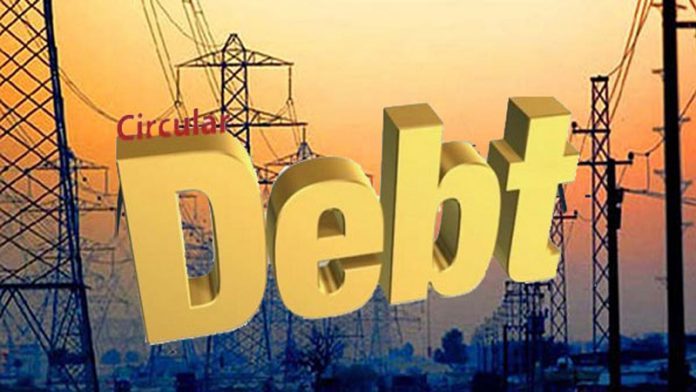Islamabad, Feb 23: Pakistan’s circular debt reached Rs2.384 trillion by the end of December 2024, highlighting persistent inefficiencies in the power sector despite multiple tariff adjustments. A Power Division report revealed that sectoral losses amounted to Rs158 billion in the first half of the fiscal year, with Hyderabad Electricity Supply Company (HESCO) and Sukkur Electric Power Company (SEPCO) alone accounting for 52% of the total losses.
Governance issues within these companies remain a major concern, as their boards have remained unchanged due to political arrangements between the federal government and its coalition partner, the Pakistan Peoples Party (PPP).
Despite the government’s efforts to control rising debt, a net reduction of only Rs9 billion was achieved in the first six months of the fiscal year. The government injected Rs20 billion from the budget, but non-recoveries and inefficiencies still led to an overall increase of Rs11 billion in the circular debt flow.
The International Monetary Fund (IMF) had permitted an additional Rs461 billion in circular debt accumulation, yet the Power Division’s performance remained below this threshold, reflecting an ongoing struggle to improve efficiency. Losses due to inefficiencies reached Rs106 billion 38% higher than the previous fiscal year while under-recoveries stood at Rs52 billion, marking an improvement of Rs97 billion compared to the previous year.
In an attempt to mitigate these losses, the government recovered Rs67 billion through fuel cost adjustments and an additional Rs140 billion from tariff adjustments. However, issues such as non-payment by K-Electric (Rs12 billion) and Rs56 billion in unpaid interest charges continued to exert pressure on the sector’s financial health.
Power Division spokesperson Zafar Yab Khan defended the sector’s performance, noting that total losses had declined by Rs69 billion compared to the Rs226 billion recorded in the same period last year. However, the continued rise in losses from HESCO and SEPCO by Rs28 billion underlined the urgent need for governance reforms. He confirmed that steps were being taken to appoint independent Boards of Directors to improve financial discipline in these struggling entities.
While electricity prices were increased by 51% in July 2024, leading to a Rs7.12 per-unit hike, industrial consumers benefited from a Rs11 per-unit reduction by December. The government also introduced a winter package with a flat rate of Rs26 per unit, which contributed to a 6% increase in industrial consumption in December, partially offsetting revenue losses.
Despite the short-term improvements in recoveries, the circular debt crisis remains a critical challenge. Experts stress that sustained progress will require strict governance reforms, significant reductions in electricity theft, and a balanced approach to pricing that ensures affordability while maintaining financial stability in the power sector.
